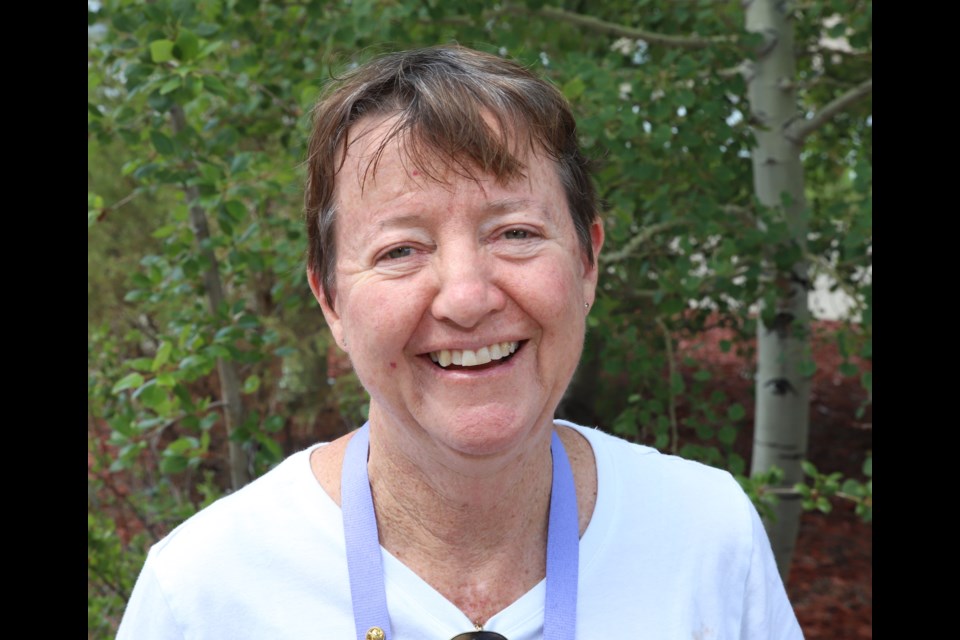OLDS — An Australian agricultural journalist, one of about 200 journalists who descended on Olds for a convention, says she’s found that there are more similarities among Australian and Canadian producers and their concerns than there are differences.
Sally Gall, who has been in the business for 41 years, says she’s also learned a tip from Canadian forestry practices that she’ll share with her readers back home.
The International Federation of Agricultural Journalists (IFAJ) held its annual congress in Olds June 27-July 3. Members used the Olds College of Agriculture as their base, and toured various agricultural points of interest in the surrounding area.
“I would say (there are) more similarities, really,” Gall said during an interview with the Albertan.
She listed some of those similarities.
“(People in the agriculture industry are) concerned that they’re a forgotten part of society, that society doesn’t really understand how they operate the way they do,” she said.
Gall said producers in Australia and Canada are both concerned with issues with how to deal with the impact that carbon reduction efforts will have on their industry.
In addition, Gall said a lot of gas exploration is done where she comes from in western Queensland.
“There’s that interplay between people on the land and gas coming up and worries about fracking and what that will do to the water,” she said.
"The other thing I’ve really noticed is that everybody everywhere in the world seems to be having an issue with labour shortages. None of us can work out where all the people went," Gall said with a laugh.
“I mean, everyone says Canada and Australia have a lot in common. But I wasn’t expecting it to be quite so in common – except that your temperature’s very different to ours,” she added with another laugh.
Gall was intrigued to learn that some experts in this country are suggesting Canada could reduce the threat of wildfires by conducting controlled burns in forests to reduce the amount of potential fuel for fires.
She said before colonization, aboriginal people in Australia deliberately set fires to clear bush. That helped make it easier for hunting, but also cut down on fuel for bush fires.
However, Gall said the government in that country outlawed the practice.
"Yet we see here that it’s an accepted practice to try and not make wildfires so intense, so that’s something I’m taking back to my people, to my readers, that actually, the Canadians might be showing us the way,” she said.
During the congress, the group toured a bison farm and its meat-cutting premises; a grain elevator partly owned by an Australian grain company; and took in the Ponoka Stampede.
They also attended several talks on Canadian Indigenous culture urban agriculture, press freedom, and social media.
Gall also planned to interview Australian firefighters who are in Canada to fight wildfires here. She also planned to spend a few extra days in the area to interview Australian competitors in the Calgary Stampede.
Gall noted that although it’s called the International Federation of Agricultural Journalists, the congress also attracts other journalists who don’t specialize in agriculture as well as public relations specialists and consultants.
Also attending the congress was Finnish photojournalist Petteri Kokkinen of London, England. Gall also noted that about 15 people were in the Australian contingent, including her editor, Lucy Kinbacher.



